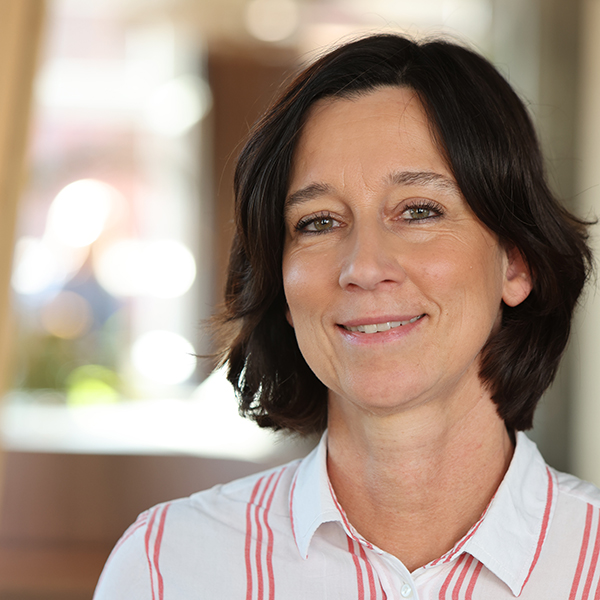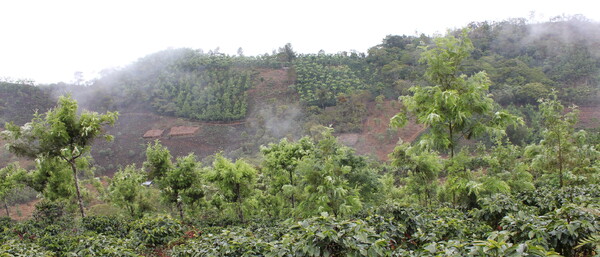
Our goal: 100% responsibly sourced coffee
From 2027 on, Tchibo plans to only offer responsibly sourced coffee! How does that work? What does that mean?
Challenge accepted: Whether Feine Milde, Eduscho, Qbo, Cafissimo, Barista or Raritäten - all Tchibo coffees are to be responsibly sourced from 2027 on. This requires a certain attitude and swift action, as coffee farmers around the world are suffering from both the consequences of climate change and low incomes. At the moment, 20% of our coffee is certified, 80% is not. How do we get this large quantity sustainably sourced quickly?
10 questions for the programme manager Pablo von Waldenfels, Director of Corporate Responsibility at Tchibo.
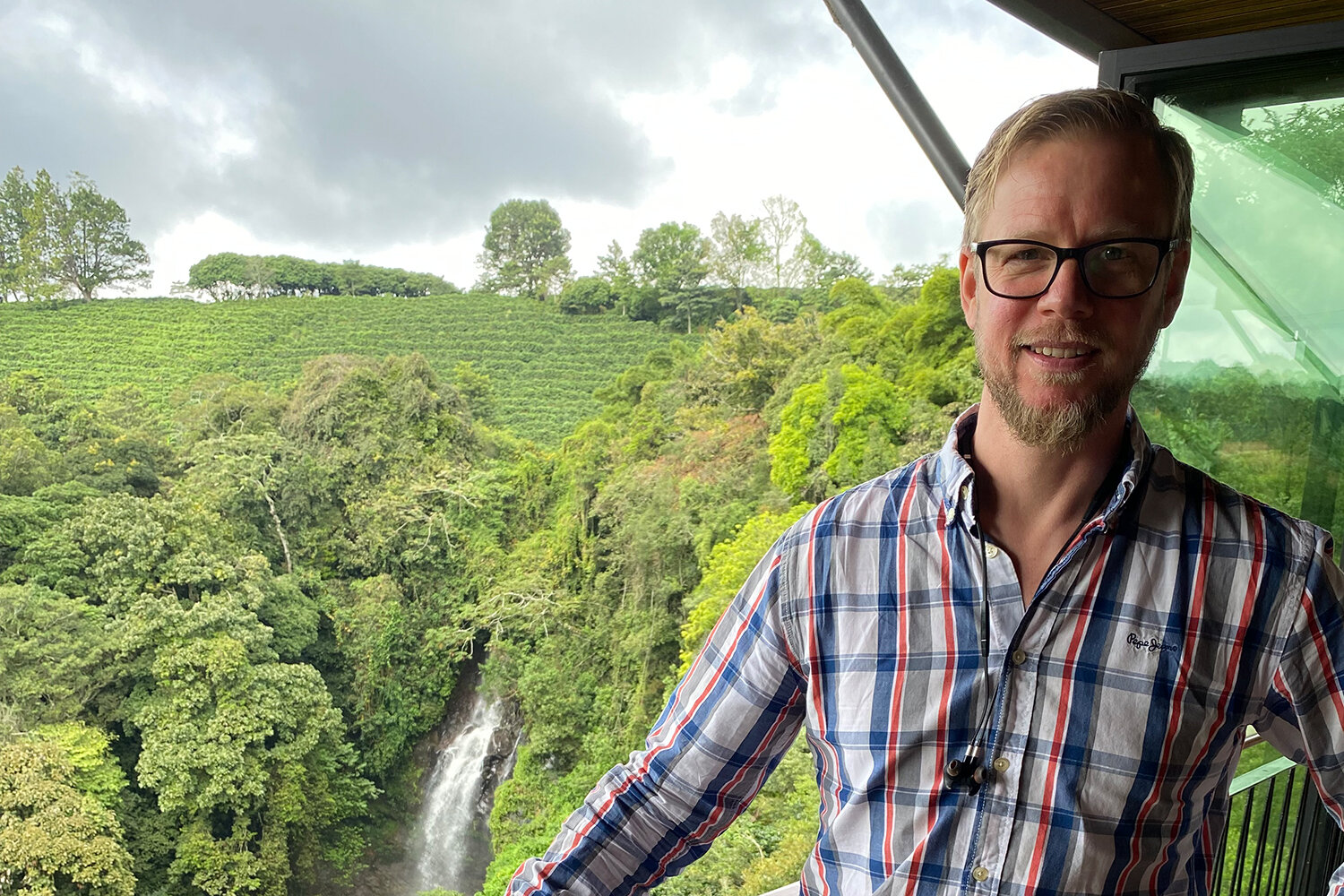
Pablo, are you planning some kind of coffee revolution?
PvW: Not quite, but it is clear that sustainability in coffee is not a fixed state, but a path. The most pressing questions are: How can coffee farmers make economic progress while better positioning themselves against climate change and other crises? The effects of climate change on coffee cultivation are worrying. By 2050, the area under coffee cultivation could be halved, as dryness and drought lead to significant crop failures. In addition, 70 % of the world's 12.5 million coffee farmers cultivate farms of less than one hectare. They suffer from low incomes, which can lead to problems such as child labour and illegal deforestation. In our view, the coffee industry must undergo major changes if our favourite drink is supposed to have a future.
20 % of Tchibo coffees are certified, why not more?
PvW: That's right, 20 % of all Tchibo coffees are currently certified by Fairtrade, Rainforest Alliance and the organic label or come from Tchibo Joint Forces!(R) projects. These projects have been supporting coffee farmers for over 20 years in developing more sustainable cultivation methods and thus producing higher quality coffee. As Tchibo, we have achieved a great deal in this way. However, certification alone is not the solution. Farmers need more support on their way to more sustainable cultivation. The higher prices that they can achieve for certified products often do not cover their production costs. In addition, there are rarely purchase guarantees for certified coffees on the market.
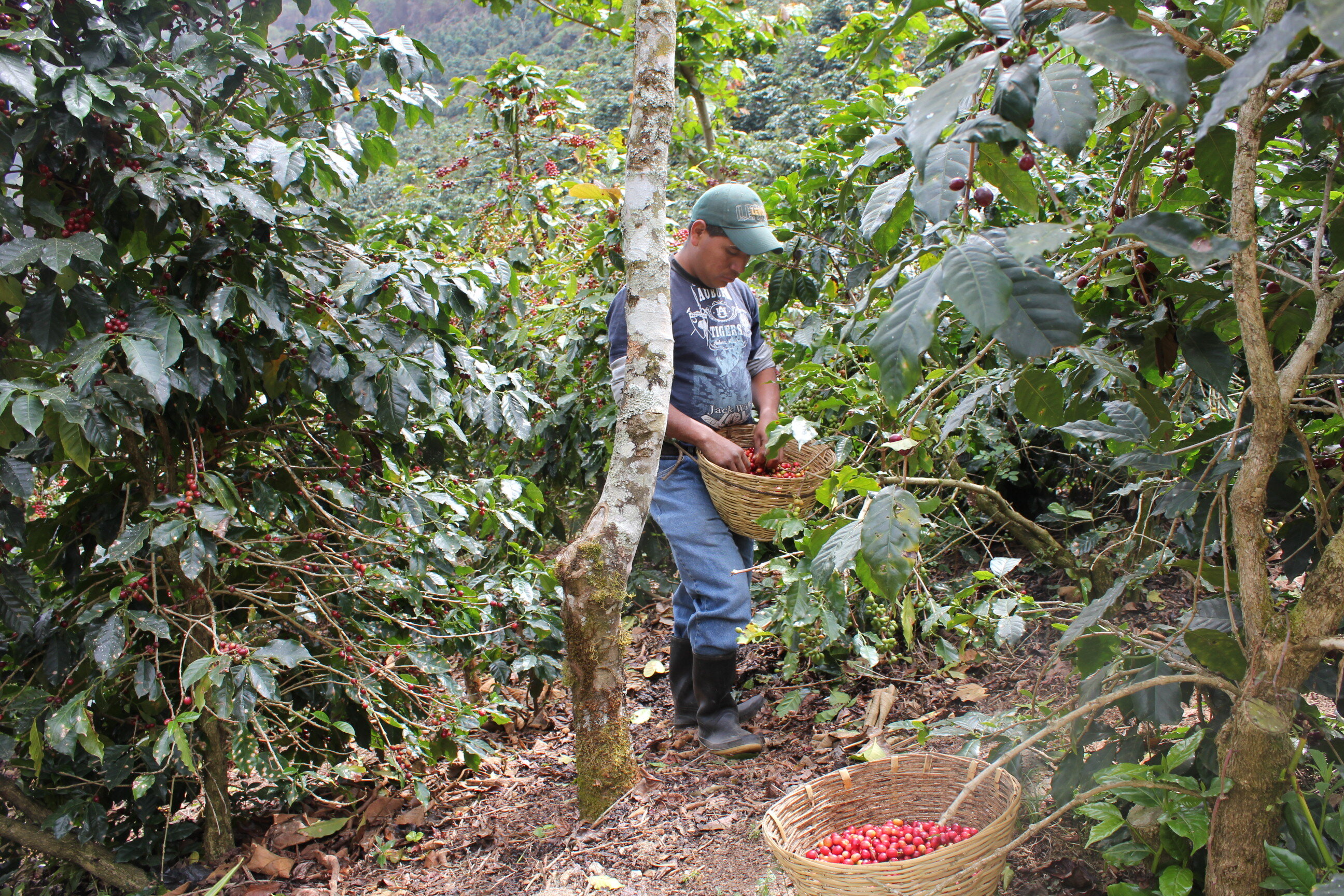
So what should happen to the remaining 80 %?
PvW: We have launched our new coffee sustainability programme for them, because as a company we have to take responsibility more consistently ourselves. We want to significantly improve the situation for all farmers. The fact is that around 75,000 small farmers (from countries including Guatemala, Honduras, Vietnam and Brazil) produce all of the Tchibo coffee. 80 % of the coffee that is produced is not certified. But it is precisely these coffees that should be grown in the most environmentally friendly and socially responsible way possible in order to significantly improve the farmers' livelihoods.
How and where does the coffee programme start?
PvW: We are intensifying our cooperation with all coffee farmers. In 2022, we launched the country programmes in the most important sourcing countries, starting with Brazil, Vietnam and Honduras. By 2027, all countries from which we regularly source coffee should be covered by the coffee programme. This will then also include Ethiopia, El Salvador, Guatemala, Kenya, Colombia, India, Peru and Tanzania.
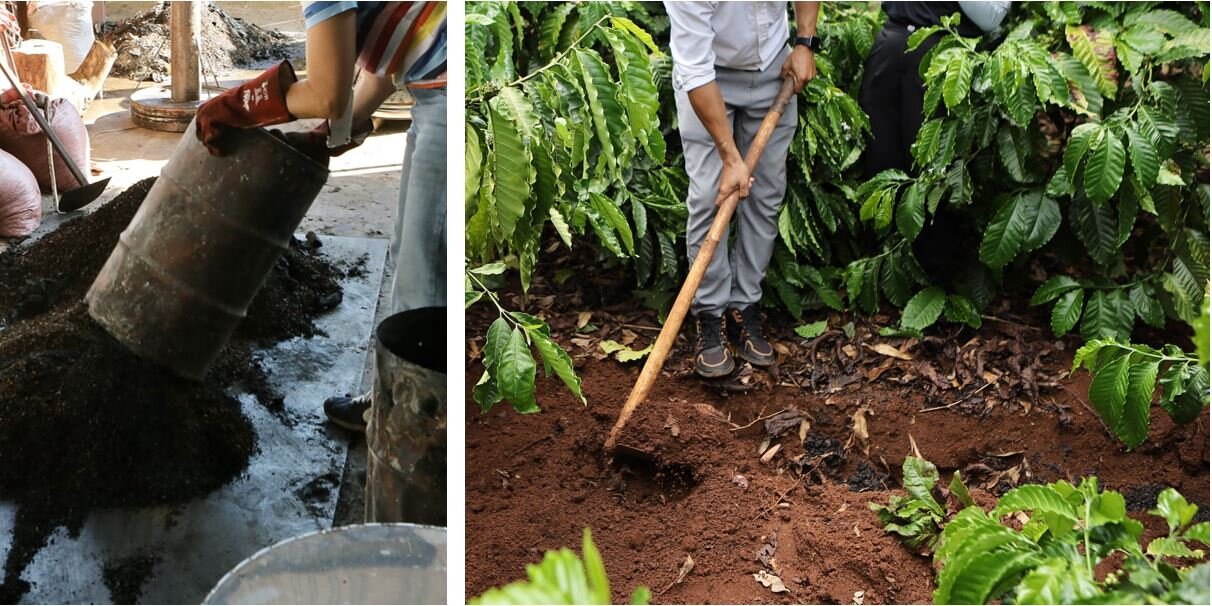
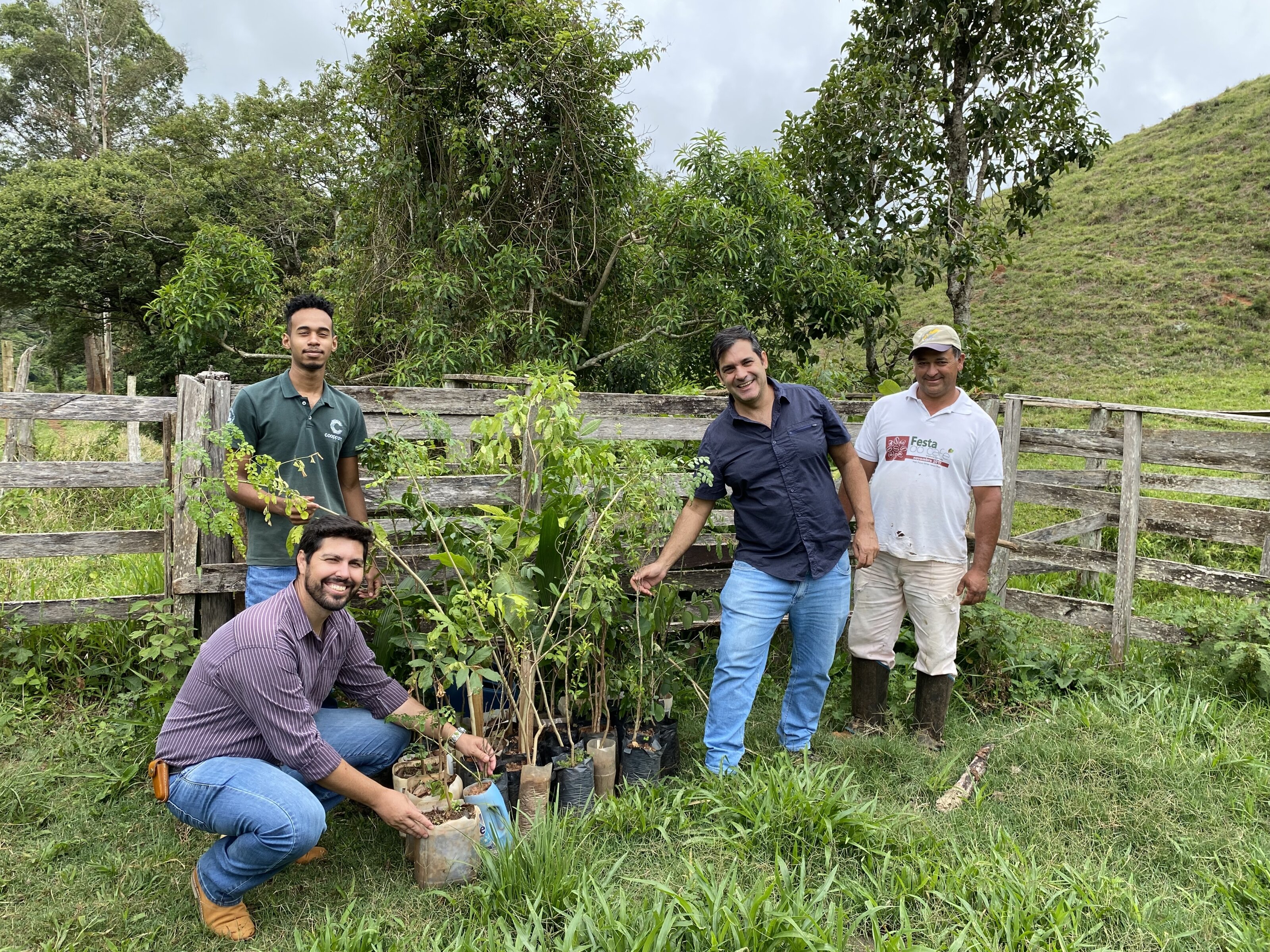
Wie sieht das Kaffeeprogramm konkret aus?
PvW: The most important thing: we have to talk to the farmers! We need to find out what the farmers need and support them with their requirements. We will help them to build an economically stable foundation to make them more resilient to price fluctuations. This includes measures such as agroforestry, reforestation, the cultivation of fruit trees and other crops, and the sowing of new coffee varieties that are better protected against extreme weather conditions. These measures are implemented in close cooperation with trainers and agronomists from the exporters.
We coordinate the specific measures regionally in order to achieve the greatest possible impact. In Brazil, for example, the focus is on protecting biodiversity, the climate and water, while in Honduras the emphasis is on combating poverty. In this way, each country receives a tailor-made programme.
What about the price?
PvW: We want to make all supply chains sustainable, regardless of how expensive our coffee is on the shelf. However, in a very competitive environment, it is not possible to completely break out of the established prices. We therefore rely on an intelligent mix here: the coffee programme, the purchase of the highest possible quality (with which the farmers also achieve higher prices) and the gradual expansion of the proportion of coffee from the programme regions. This brings more turnover and stability for the farmers.
When will coffee from the new programme be available?
PvW: We are already receiving coffee from the first project regions in Honduras, Tanzania and Guatemala, but we are not yet reporting it separately. We will do this in the future, but the project with Enveritas must first be running well on a broad scale.
And as with Truemorrow for BLACK & WHITE, is Tchibo working with Enveritas again?
PvW: We are working with the independent non-profit organisation Enveritas to achieve the greatest possible transparency about our areas of activity. By the beginning of 2024, Enveritas will present country reports and analyses for all coffee countries (including Brazil and Vietnam) where Tchibo regularly makes purchases. Based on this data, we will work with the people in the regions to develop tailored solutions without imposing a programme on them. Enveritas also checks whether the programmes are being implemented and are having an impact.
Are there more partners?
PvW: Of course, depending on the country and supply chain, we work together with local partners and NGOs, as well as with other companies and organisations such as World Coffee Research and the German Coffee Association. The aim is to find solutions together to drive forward the strengthening of the coffee sector. And to work together to create a change towards greater sustainability.
Last but not least: What does "responsible purchasing" actually mean?
PvW: It takes three steps for coffee companies like Tchibo to obtain Enveritas' responsible sourcing certification: Firstly, to conduct an annual independent assessment of their supply chain for sustainability issues; secondly, to work on these issues proportionately to their own coffee purchases. And finally, coffee companies must have their efforts to achieve positive change independently assessed.
Thank you for the interview!
